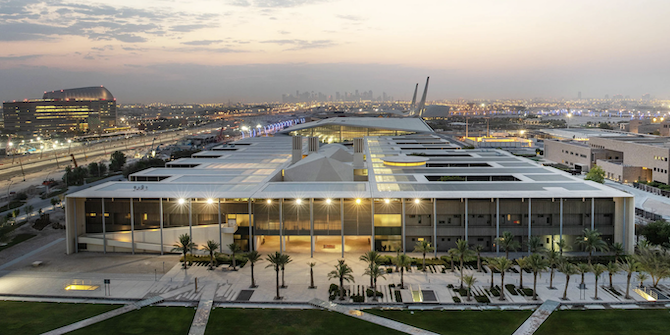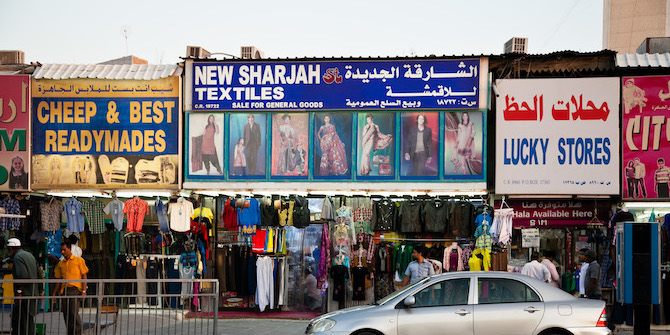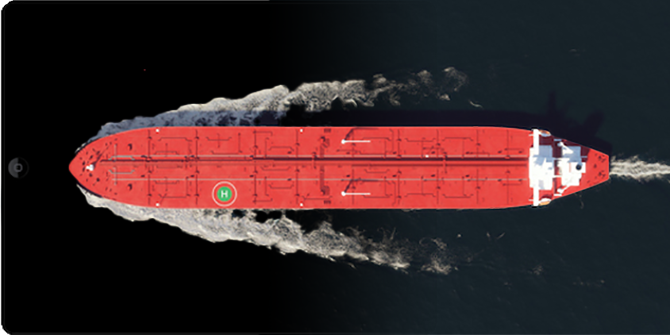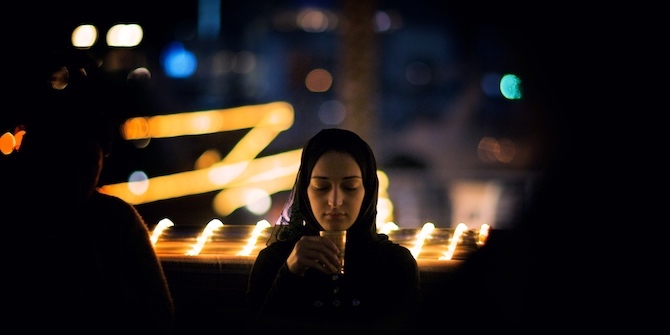by Hind Al-Ansari

Over the past two decades, some of the GCC states have taken major strides to transform from dependence on revenues gained from oil and gas exports to knowledge-based economies (KBE), powered by indigenous human capital. The revenues gained from the petroleum industry have enabled these states to begin to gradually materialise change in a variety of spheres, including the field of education. Nevertheless, while remarkable grand projects have been initiated to redefine the role of education in the GCC, attendant social ramifications are inevitable. The emergence of citizens who are equipped with critical reflexivity will certainly pose challenges to the monarchical regimes in the long term.
The embrace of Western education models has been at the frontline of these reform strategies. Qatar has heavily invested in Education City, a multi-billion-dollar education hub that hosts a number of prestigious American and European universities. The UAE has a number of branch campuses as well, including New York University (NYU) in Abu Dhabi and the University of Birmingham in Dubai. In Saudi Arabia, where for decades education has been overseen by the religious authorities, the government has dedicated billions of dollars for education reform initiatives, including establishing co-curricular programs with Western universities.
The reforms implemented thus far, however, should not be taken at face value. Western liberal ideals, which fundamentally promote critical engagement with knowledge and the questioning of global power structures, contradict the bureaucratic nature of the monarchical regimes and the traditional norms of their societies. For example, at Georgetown University in Qatar (GU-Q) as well as at NYU Abu Dhabi’s social science majors, the pedagogy of the programs cognitively challenge students to rethink the ways they interact with and produce knowledge, especially in the discipline of politics. This learning process can also influence one’s perception of citizenship ideals in a given state.
Conversely, since the survival of GCC monarchies hinges upon citizen loyalty, the national educational institutions are attuned to a social order produced by the socialisation process. Education has been orchestrated to protect the interest of the royal families and secure loyalties. Between the late 1960s and 1970s, there was an influx of Arab and foreign workers who traveled to the Gulf states for work as the demand for labour increased. Given the rise of Arab nationalism during that time, some GCC governments were deliberately strict about the entry of Arab nationals. The fear was that they would infiltrate institutions, especially schools, and promote political ideologies such as socialism or Marxism, which would ultimately provoke division and threaten the stability of the rulers.
Public schools in the region have traditionally emerged based on a system that upholds rote learning and restricted pedagogy. Rote learning is a regulated model through which students memorise and regurgitate knowledge rather than actively and critically engaging with it. Such a system, which within its limited parameters is reasonably efficient, has its advantages for non-democratic governments and societies. Arguably, it can produce literate citizens capable of performing technical skills.
Social sciences subjects in public schools, for example, are generally based on selective, state-affirmed narratives. Students are neither educated about citizenship rights nor regional or global issues (with the exception of Kuwaiti public schools that teach human rights in grade 12). Instead of scrutinising historical events and engaging in vibrant discussions, students are typically expected to memorise textual information. At the new Western satellite campuses, however, analytical discussions based on student perspectives are a key aspect of the learning process.
To promote critical thinking skills, which can be defined as the ability to rationally question, analyse, and evaluate a set of information, in the GCC states however is quite paradoxical. In Socratic terms, critical thinking involves the ability to think beyond what is taught by the prevailing authority. Liberal education, then, considering the disparity in values between the Socratic ideal and public education in the region, reverses the effects of the socialisation process in which citizens become compliant and passive. Students learn and engage with Western epistemic mechanisms through which they produce and critique knowledge, including matters pertaining to their environment. When students develop such skills, some are likely to embrace and think through the lenses of different ideologies, which could weaken the underpinnings of a given polity.
Generally, the political and social nature of these states remain incompatible with pluralism, especially concerning freedom of speech and expression. Although these issues are not handled identically across the GCC states, there tend to be a host of restrictions. In Qatar, without official permission, assemblies that promote or discuss what the government deems politically-sensitive are unlawful. In the UAE and Saudi Arabia, the governments have openly expressed intolerance of freedom of speech by frequently arresting dissidents and human rights activists. Even in Kuwait, which is considered the most progressive GCC state, the government applies repressive measures on activists and political opposition.
To produce a thriving economy as well as effectively boost national participation in the private sector, abolishing rote learning would be necessary. While Western education is not the sole bastion of critical thinking, the alternative mode of education at the imported campuses serves to unequivocally challenge the status quo. Students at national universities are also taking part in a gradually reforming the system, but they are more likely to encounter scrutiny by their administration over their academic materials and activities. Nevertheless, whether in a satellite campus or a public university, educational settings should be safe spaces for students to openly learn about and question all sorts of issues that they can later unreservedly discuss in their respective communities.







Hi, all is going perfectly here and ofcourse every one is sharing information, that’s realy fine, keep up writing.